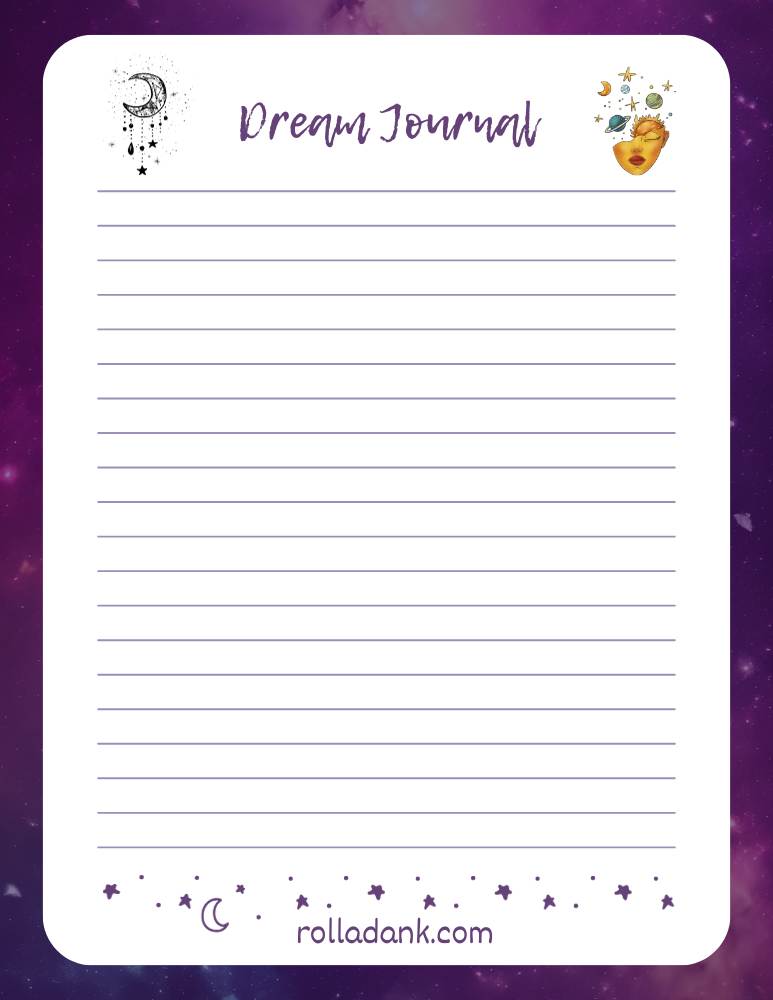
For centuries, dreams have been regarded as mysterious and mystical experiences that hold significance for our waking lives. Some people believe that dreams can offer guidance, insight, and even precognition. Others view them as simply a natural function of the brain, devoid of any deeper meaning. Regardless of where one stands on the spectrum of dream interpretation, one question that often arises is whether or not to write down dreams. In this article, we will explore the pros and cons of keeping a dream journal and provide tips on how to decide whether it’s right for you.
The Pros of Writing Down Dreams

If you’re someone who vividly remembers your dreams or is interested in exploring their significance, you may be wondering if it’s worth taking the time to write them down. While it may seem like a hassle to record your dreams, there are many benefits to doing so. Writing down your dreams can be a powerful tool for gaining insight into your inner thoughts, emotions, and spiritual experiences.
Browse our Affiliate Products
Below, you will find some of the key advantages of writing down your dreams:
Enhanced Dream Recall
One of the most obvious benefits of writing down dreams is the increased ability to remember them. When we wake up from a dream, our brain is in a state of transition between the unconscious and conscious mind. If we don’t take the time to reflect on the dream or record it in some way, likely, we will quickly forget it as our focus shifts to the demands of the day. By keeping a dream journal, we are essentially training our brain to pay closer attention to the content of our dreams, which can result in improved dream recall over time.
Increased Self-Awareness and Understanding of the Subconscious Mind
Dreams can provide a wealth of insight into our subconscious mind, revealing fears, desires, and conflicts that may be hidden from our waking awareness. By writing down our dreams, we have the opportunity to reflect on their meaning and gain a deeper understanding of our own psyche. This self-awareness can lead to personal growth and development as we work through unresolved issues and gain clarity on our goals and aspirations.
Opportunities for Creative Inspiration
Many artists, writers, and musicians have reported using dreams as a source of inspiration for their work. Dreams can offer a wealth of imaginative material, from vivid imagery to abstract concepts. By keeping a record of our dreams, we have a ready-made source of creative inspiration at our fingertips.
Click to download this pdf dream journal below.

Ability to Track Patterns and Recurring Themes in Dreams
Another advantage of keeping a dream journal is the ability to identify patterns and recurring themes in our dreams. For example, we may notice that we frequently dream about falling or being chased, which may indicate a deeper fear or anxiety in our waking life. By tracking these patterns over time, we can gain insight into underlying issues and work to address them in our daily lives.
For more information on dreams, check out these articles:
- Spiritual Significance of Dreams: The Mystical World of Dreaming
- Understanding Spiritual Significance of Dreams About the Departed
Cons of Writing Down Your Dreams
While there are many benefits to recording your dreams in a journal, there are also some potential drawbacks to consider. From the risk of becoming too focused on your dream world, to the possibility of becoming overly reliant on dream interpretation guides, there are several factors to weigh when deciding whether or not to keep a dream journal. By examining these potential downsides, we hope to help you make an informed decision about the role that dream journaling should play in your spiritual practice.
Here is a list of disadvantages below:
- Time-Consuming
- Recording your dreams can be time-consuming, especially if you have vivid dreams that require a lot of detail. If you already have a busy schedule, adding dream journaling to your routine may not be feasible.
- Difficulty Recalling Dreams
- Some people may have difficulty recalling their dreams upon waking, making it challenging to document them accurately. This can lead to frustration and a feeling of discouragement.
- Disturbs Sleep
- Taking the time to write down your dreams upon waking can disrupt your sleep cycle and make it more difficult to fall back asleep. If you struggle with insomnia or have trouble getting a full night’s sleep, dream journaling may not be the best option for you.
- Can Cause Anxiety
- Recording your dreams can bring up unresolved emotions or fears that you may not be ready to confront. This can cause anxiety and stress, which may negatively impact your mental health.
- May Be Misinterpreted
- Interpreting dreams can be tricky, and recording them in a journal can lead to misinterpretation or confusion. It’s important to approach dream journaling with an open mind and avoid making assumptions or jumping to conclusions about the meaning of your dreams.
Should You Write Down Your Dreams?
Ultimately, the decision to write down your dreams is a personal one. If you’re interested in exploring your subconscious mind and gaining insight into your inner world, keeping a dream journal may be a useful tool. However, if you find it time-consuming, stressful, or disruptive to your sleep cycle, it may not be the best option for you.
If you decide to start a dream journal, consider setting aside a few minutes each morning to write down any dreams you remember. Keep a pen and notebook by your bed to make the process easier, and try not to overthink the content of your dreams. Remember that dreams can be mysterious and symbolic, so don’t be too hard on yourself if you don’t immediately understand their meaning.
Frequently, our conscious mind processes the events of our day, and much of what we experience is woven into our dreams, often infused with aspects of our personality. While these dreams may seem vivid and lifelike, they can be a conglomeration of our deepest fears or desires. It’s worth noting that strong emotional states, such as stress or anxiety, can also manifest in our dreams. Therefore, it’s essential to pay attention to the emotional content of our dreams, as they can offer valuable insights into our inner world and provide an opportunity for growth and healing.
Final Thoughts
Dreams can offer a fascinating glimpse into the inner workings of our minds, and recording them can be a valuable tool for personal growth and self-discovery. However, it’s important to weigh the pros and cons of dream journaling before committing to the practice. Whether or not you choose to write down your dreams, remember that they are a natural and important part of the human experience, and exploring them can be a rewarding and enlightening journey.








